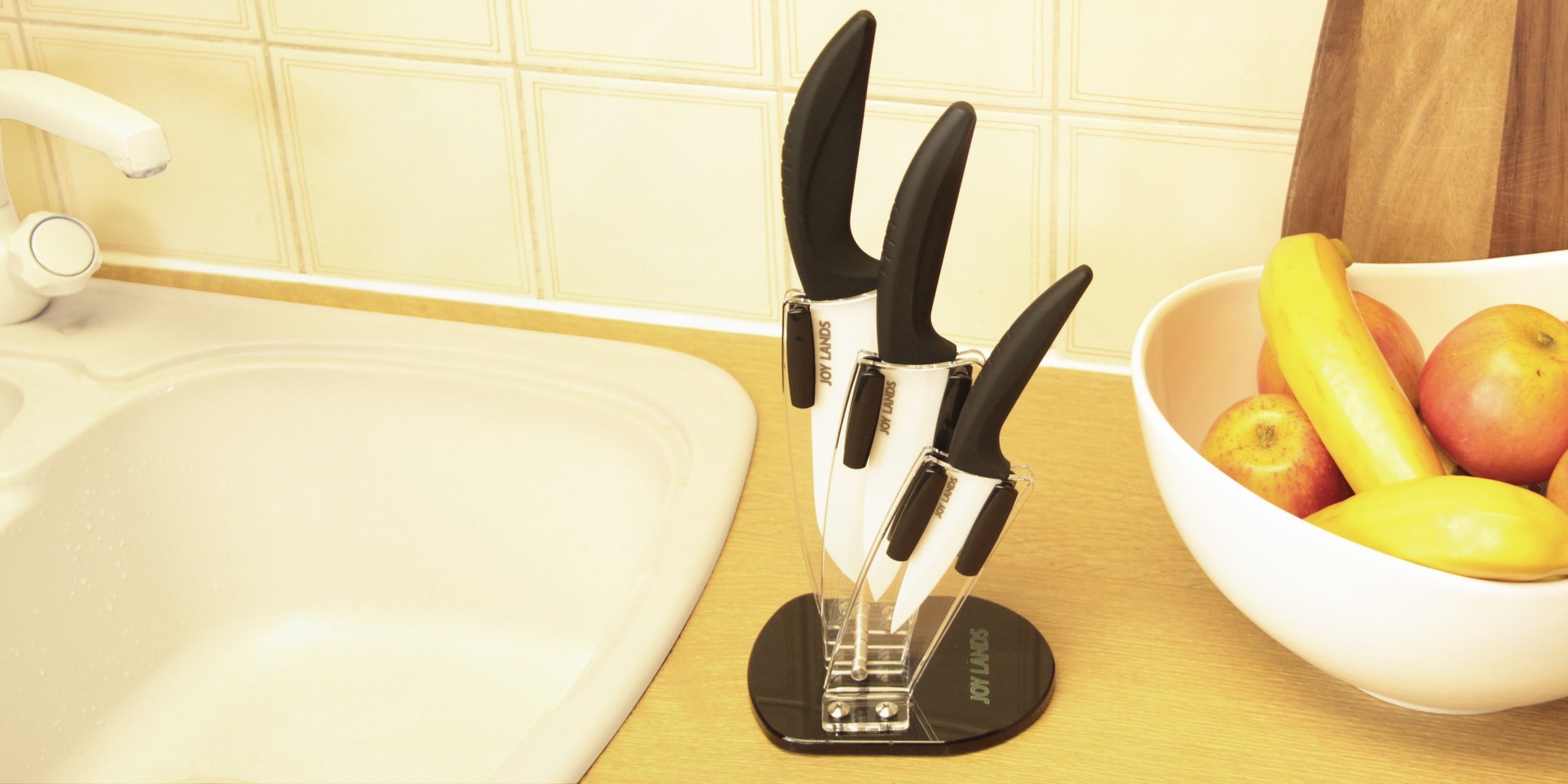Ceramic knives are made out of very hard and tough ceramic material which itself is zirconium oxide that's been heated in a process called sintering, which bonds the ceramic powder particles together by closing its pore. But what are the pros and cons of such knives?
Advantages
Light
Ceramic knives are much lighter, compared to conventional knives made from steel. This will reduce fatigue, ensure efficiency and will achieve more results, as it requires less effort for certain slicing tasks.
Hard & Durable
Ceramic knives are made from hardest known material, almost as hard as diamond. Hardness helps in retaining the sharpness of the knives as well as a razor sharp edge that is why they rarely need to be sharpened. In case of careful handling, ceramic knives will live longer!
Unless you are cutting other ceramics or diamonds, these knives should almost never get dull! Use a wooden or bamboo cutting board and never use glass or metal ones.
No metal parts means they are not exposed to occidation and deterioration which also adds up to their durability.
Hygienic
Ceramic knives are scientifically proven not to be contaminated by acids, juices, salt or other substances during food preparation which are known to cause stains on blades preventing from easy cleaning and ruining the knife. Consequently, the knives will not affect the taste of the food or its healthy properties - an ideal choice for mothers having babies.
Ceramic blades are very dense and non-porous at all. A quick rinse in warm water will make a ceramic knife much cleaner than a thorough scrubbing on a metal knife. Strong smells of fish, garlic, onion and etc. are easily washed up just with warm water.
Disadvantages
Fragile
Though being hard and durable, ceramic knives are quite brittle, that is why they must be handled with care and stored safely. It means they must be stored separately from other knives or in special knife blocks.
Do not use them in cutting hard materials such as frozen food or bones, otherwise they can become blunt or even crack!
Though some manufacturers say their ceramic knives can be washed in a dishwasher, we recommend hand washing only.
What should be strictly avoided is twisting, scraping or bending the ceramic blade and subjecting it to extreme temperatures.
Cost
Usually Ceramic knives are expensive, but the same is about other high end knives. It is a reasonable investment of your money, as a ceramic knife will live longer and require less sharpening.
Addiction
Once you try cutting with a ceramic knife, all other not-ceramic knives will seem blunt to you.
